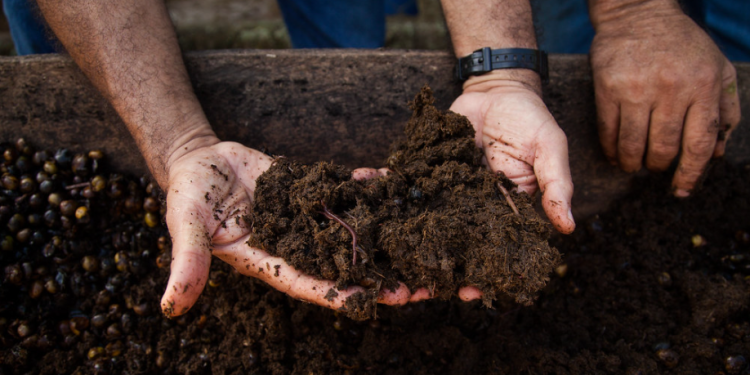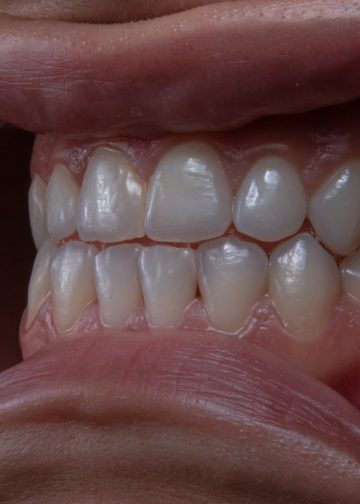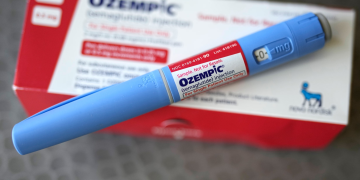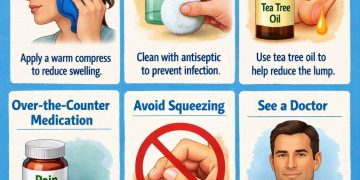Plants require essential nutrients to grow and thrive like all living organisms. While soil naturally provides some nutrients, they must often be supplemented to ensure optimal growth.
This is where plant food and fertilizer come into play. While both are used to enhance plant growth, they differ in their nutrient content, formulation, application method, cost-effectiveness, environmental impact, and effectiveness.
In this article, we'll explore the key differences between plant food and fertilizer to help you make informed decisions about nourishing your plants.
What is Fertilizer?
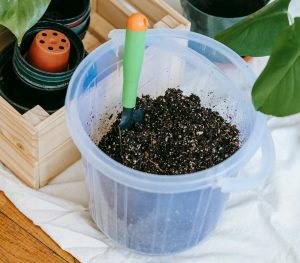
A fertilizer is a substance or mixture of substances that is applied to soil or plants to supply essential nutrients that are required for plant growth. These nutrients are crucial for various plant functions, including photosynthesis, cell division, and overall growth and development.
Fertilizer Categories
Fertilizers can be broadly classified into two categories based on their source:
1. Organic Fertilizers
These are derived from natural sources, such as animal manure, compost, and plant residues. Organic fertilizers contain a variety of nutrients and also improve soil structure and fertility over time.
They are often preferred for their ability to enrich the soil with organic matter and promote long-term soil health.
2. Inorganic Fertilizers (Synthetic Fertilizers)
These are manufactured through chemical processes and are often more concentrated than organic fertilizers. Inorganic fertilizers typically contain specific nutrients, such as nitrogen, phosphorus, and potassium (N-P-K), in proportions suitable for different plant types and growth stages.
They are popular for their immediate nutrient availability and effectiveness in correcting nutrient deficiencies.
Also Read: Bell Peppers Growing Stages: From Seed to Harvest
Fertilizers can also be classified based on their nutrient content and release characteristics:
1. Complete Fertilizers
These contain a balanced mix of nitrogen, phosphorus, potassium, and other essential nutrients like calcium, magnesium, and sulfur. They are suitable for general-purpose use and promote plant health and growth.
2. Straight Fertilizers
These contain primarily one nutrient, such as urea (a source of nitrogen), superphosphate (a source of phosphorus), or potassium chloride (a source of potassium). Straight fertilizers are used to target specific nutrient deficiencies in plants.
3. Slow-Release Fertilizers
These release nutrients gradually over time, providing a steady supply of nutrients to plants. Slow-release fertilizers are beneficial for reducing nutrient leaching and ensuring that plants have a continuous supply of nutrients for optimal growth.
What is Plant Food?
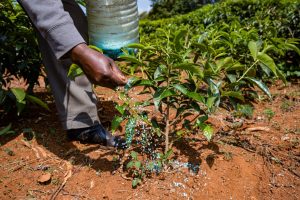
Plant food, often called “plant fertilizer,” is a substance added to soil or sprayed on plants to improve their health and growth.
It typically contains a mix of essential nutrients such as nitrogen, phosphorus, and potassium (N-P-K), along with other micronutrients like calcium, magnesium, and sulfur.
Learn more Plum vs Pluot: Key Differences Unveiled!
Types of Plant Food
Plant food can come in various forms, including:
- Synthetic Fertilizers
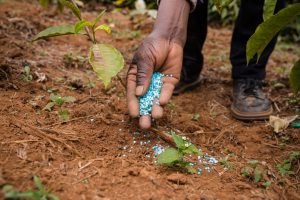
These are manufactured fertilizers that contain specific concentrations of nutrients. They are often used to address specific nutrient deficiencies in soil.
- Organic Fertilizers
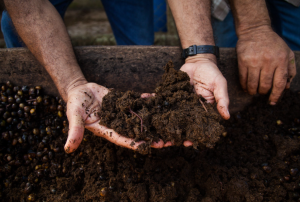 These are derived from natural sources, such as compost, manure, or bone meal. Organic fertilizers release nutrients slowly, providing a more sustainable source of plant food.
These are derived from natural sources, such as compost, manure, or bone meal. Organic fertilizers release nutrients slowly, providing a more sustainable source of plant food.
- Liquid Fertilizers

These are plant foods that are dissolved in water and applied to the soil or sprayed directly on the plant's foliage. Liquid fertilizers are quickly absorbed by plants, providing a rapid nutrient boost.
- Granular Fertilizers
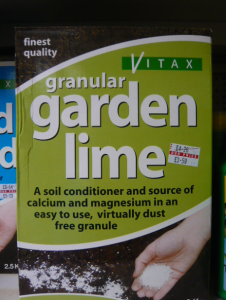
These are solid fertilizers that are applied to the soil and slowly release nutrients over time. Granular fertilizers are often used for long-term soil enrichment.
Also Read: Jalapeno Plant Stages: Step by Step From Seed to Harvest
8 Key Differences Between Fertilizer and Plant Food

1. Composition:
Plant Food: Plant food is a blend of nutrients designed to provide a comprehensive diet for plants. It typically contains nitrogen (N), phosphorus (P), potassium (K), and other micronutrients essential for plant growth.
Fertilizer: Fertilizers are formulated to provide specific nutrients. For example, a fertilizer labeled as “10-10-10” contains 10% nitrogen, 10% phosphorus, and 10% potassium by weight, with the remaining 70% made up of inert ingredients.
2. Nutrient Content:
Plant Food: Plant food often has a higher concentration of nutrients compared to fertilizers. This is because it is designed to provide a broad spectrum of nutrients for overall plant health.
Fertilizer: Fertilizers are more focused, providing specific nutrients that may be lacking in the soil or needed in larger quantities by the plant.
3. Purpose:
Plant Food: Plant food is formulated to promote overall plant health, growth, and flowering. It provides a balanced supply of nutrients to support various plant functions.
Fertilizer: Fertilizers are used for specific purposes, such as promoting greener foliage, encouraging flower or fruit production, or addressing nutrient deficiencies in the soil.
Also Read: Pitaya vs Pitahaya Fruit: Unveiling the Major Differences
4. Application Method:
Plant Food: Plant food is typically applied as a liquid or granular supplement that is mixed with water and applied to the soil around the plant.
Fertilizer: Fertilizers can be applied in various forms, including granules, powders, or liquids. They can be broadcast over the soil surface or applied directly to the plant's foliage.
5. Timing of Application:
Plant Food: Plant food is applied regularly throughout the growing season to provide a continuous supply of nutrients.
Fertilizer: Fertilizers are applied at specific times based on the plant's growth stage and nutrient requirements. For example, phosphorus-rich fertilizers are often applied before planting to promote root development.
6. Effectiveness:
Plant Food: Plant food is quickly absorbed by plants, providing an immediate boost of nutrients for visible growth and flowering.
Fertilizer: Fertilizers can have a more gradual and long-lasting effect. Some fertilizers are designed to release nutrients slowly over time, ensuring a steady supply for the plant's needs.
7. Cost:
Plant Food: Plant food is generally more expensive than fertilizers due to its higher nutrient content and broader range of nutrients.
Fertilizer: Fertilizers are more cost-effective, especially when used in larger quantities or for addressing specific nutrient deficiencies.
8. Environmental Impact:
Plant Food: Plant food can be more environmentally friendly, especially if it is derived from organic sources. Organic plant foods are often made from natural ingredients that are less likely to harm the environment.
Fertilizer: Some fertilizers can have a higher environmental impact, especially if they contain synthetic chemicals or if they are overused. These fertilizers can contribute to water pollution and soil degradation if not used responsibly.
Also Read: 7 Steps of Garlic Growth Stages: From Planting to Harvesting
Conclusion
Plant food and fertilizer are both valuable tools for promoting plant growth and health. Plant food is specifically formulated to provide a balanced mix of nutrients that plants need for optimal growth, while fertilizers can vary widely in nutrient content and release characteristics.
By understanding the differences between plant food and fertilizer, you can make informed decisions about how best to nourish your plants and promote their health and vitality.


